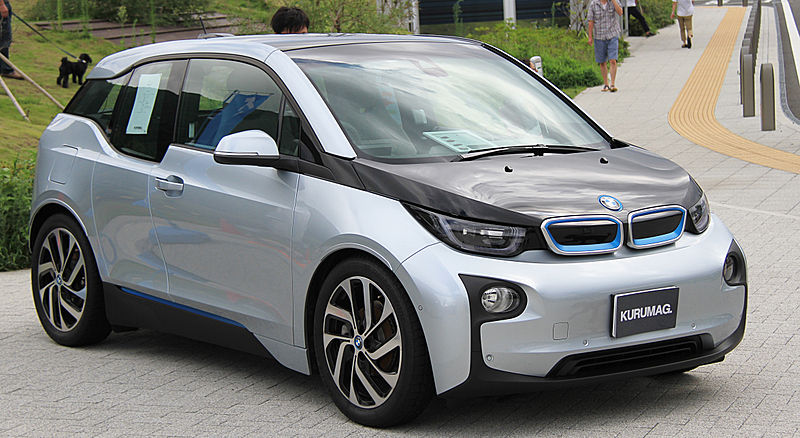thegood |
|
news2014 |
The cost of solar drops below retail pricesAccording to PVinsights, quoted by Clean Technica, the cost of solar electricity has been falling steeply for many years but particularly since about 2008, and in 2014 that cost was (for the first time) lower than the retail price of electricity. These are averages over various locations, so of course not all locations enjoy this situation. Nevertheless, this could be an important tipping point for solar electricity. Over the same period, the cost of oil has been rising (until very recently), so the difference in profit between producing solar and producing from oil has tended to reduce too. In future these trends are likely to continue. Although no dramatic reductions can be expected in the prices of fossil fuels from technological improvements, solar technology is buzzing with new breakthroughs. For example, a study by researchers at Liverpool University in the UK has shown that next generation solar cells produced using cadmium telluride can be 'activated' by spraying with magnesium chloride rather than the much more expensive and toxic cadmium chloride. The resulting cells work as well as cadmium telluride cells activated with cadmium chloride but should cost less. Magnesium chloride is cheaply extracted from sea water and is used to de-ice roads. It is also non-toxic. Meanwhile, research with perovskites is showing that they could be used to produce efficient solar cells at low cost. The only damper on enthusiasm is the possibility that conventional silicon solar cells may become so cheap that the perovskite approach has no cost advantage. Most of the news stories on solar technology focus on the efficiency of the photovoltaic process, converting sunlight into electricity. This is the most useful form of energy that can be recovered, but simply getting heat is also useful. Systems that generate electricity from sunlight and capture heat are being developed and their overall efficiency could be much higher. Whereas a good efficiency for a silicon photovoltaic cell would be 25%, and an excellent research cell efficiency would be nearly 45%, a combined heat and power solar cell can achieve more than 70% efficiency in converting sunlight into usable energy forms. |
UK road deaths continue to fallFigures from the UK government during 2014 show that, from 2000 to 2013, deaths from road accidents fell almost continuously in every category. Road deaths from accidents are now the lowest since records began in 1926. 
A similar long term trend has been seen in other G7 countries. The improvements do not simply follow overall road use. Cycling miles have increased by 19% since 2000 but cycling deaths have been falling. Car miles have slightly decreased but deaths have fallen by more. |
Under 20% of UK adults smokeAccording to a survey whose results were published during 2014, less than 20% of UK adults now smoke. This is the lowest level for 80 years. In comparison, in 1962 roughly 70% of men and 40% of women smoked. The national survey involved 22,167 adults. Part of the improvement in recent years is surely thanks to the UK's ban on smoking in enclosed places of work. This has transformed life for non-smokers too. Today you can go to a restaurant with no anxiety about having the experience ruined by cigarette smoke. You can apply for a job with no worries that you could end up in a smoky room for hours a day. Waiting rooms are places you can just wait and relax. However, the effect of the ban was not to reduce the number of smokers. What it did was to reduce the amount of smoking that smokers did and of course massively reduce the amount of passive smoking non-smokers suffered. The reason for the falling proportion of adults who smoke is the increasing percentage of people who have never or only occasionally smoked. Deaths from smoking have been falling for men in the UK for some years and will soon begin to fall for women. These figures are related to smoking trends in previous years. |
The cost of shopping falls for UK shoppersShoppers in the UK are benefiting from the arrival of Lidl and Aldi stores. Lidl alone has reached annual sales in the UK of over £4bn. Everyone knows that, compared to the big UK supermakets, like Tesco, ASDA, and Sainsbury's, these newcomers offer many cheaper goods. But, what shoppers lucky enough to live near one of the new stores are finding is that, the products are not lower quality. In fact they are just as good and sometimes better, the packaging designs are attractive, and there are many intriguing new products to sample. The Christmas treat products are particularly appealing. |
Older people feel younger than they areAccording to a survey of 1,352 men and women aged 50 to 75 years old, most said they usually feel several years younger than they actually are. On average, people felt 19% younger than their real age. Overall, 89% felt younger than their age, and 11% felt older. The study also found subjective age was correlated with memory performance 10 years later, so subjective age might be used to help identify people at risk of cognitive decline in later years. (Obviously this does not show that feeling younger protects your memory, as some newspapers reported!) |
US and UK vehicles more fuel efficientThe fuel efficiency of cars and trucks made in the USA has continued to improve and is now at the highest level since the EPA started keeping records in 1975. The longer term trend shows the rapid improvements between 1975 and about 1985, followed by a slow but protracted worsening of the average fuel efficiency of new vehicles coming onto US roads that continued until about 2004. Since then it's been improvements in most years and a large overall improvement. The reason for the recent favourable trend seems to be improvements in technology that give higher fuel economy. This has more than offset the continued trend towards buying ever larger, heavier, more powerful vehicles. In the UK, total energy used for road transport has also fallen over the past few years. Fuel used by cars has been falling since about 2002 and continues to fall. This is not just the effect of recession, since fuel on light and heavy goods vehicles has not fallen (apart from a dip in 2008 and 2009). In fact, the drop is almost entirely due to better fuel efficiency. 
BMW i3 - the first hypercar |
Badminton gets a boost in EnglandBadminton is one of the best participation sports for people who find treadmills boring. It is intense enough to work up a sweat yet results in far fewer injuries than contact sports like football and rugby. During 2014, Badminton England set up the National Badminton League. This consists of 6 franchise teams competing monthly, with television coverage and matches available to stream. The teams include local players and international badminton stars. The matches have a newly designed scoring system that keeps players and fans on edge almost continuously. There are almost no points where there isn't something important at stake. Most matches so far have been won narrowly. The closest so far has probably been the match between the Surrey Smashers and Loughborough Sport, played this month. After an evening of increasingly intense badminton the whole match came down to one sudden-death point in the final mens' doubles match. Surrey Smashers won, bringing the home crowd to its feet with a huge shout of relief. |
No F1 driver killed on the track for 20 yearsThough Jules Bianchi is still unconscious after a severe head injury during the 2014 Japan Grand Prix, the reaction to his accident and injury has highlighted the astonishing fact that no driver has been killed on the track in Formula One for 20 years. The last death was Ayrton Senna's in 1994. This is completely different from the carnage of the 1950s, 1960s, and 1970s when several people died each decade. The worst year was 1958 when four drivers were killed. Radical improvements were made in the 1980s and by the 1990s safety was far advanced. These improvements in safety are the result of many changes to the rules and to cars. In particular, the design of cars means that drivers now survive spectacular crashes, while their cars splinter into a million tiny (energy absorbing) pieces. Driving competitively at such high speeds is not safe, but it is far safer than in the past, even though drivers continue to drive as fast as they dare.
|

